17 CPG certifications worthy of natural foods retailers' trust17 CPG certifications worthy of natural foods retailers' trust
As more organizations offer certification of specific attributes, consumers and retailers are more likely to get confused. See what makes these credible.

Consumers, and even retailers, can be overwhelmed by the abundance of labels, seals and certifications on natural CPG food products. To complicate the situation further, not every seal or certification is supported by third-party lab testing or audit.
Reliable third-party certifications are crucial for retail buyers and consumers searching for trustworthy products. Regulations and standards behind those seals foster consumer confidence in a brand's claims. New Hope Network recently updated this list of certifications regarding animal welfare and food attributes to help buyers, store managers and team members better understand what certifications are worthy of attention.
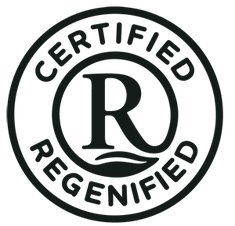
Certified Regenified
Regenerative agriculture has been rising in popularity over the last year. Regenified is a practice and outcome-based land verification and product certification program driving the growth of regenerative agriculture and the adoption of certified products. Focused on rewarding those who are making tangible moves toward Regenerative farming, Regenified uses the 6-3-4™ Standard serves as a compass for farmers embarking on the regenerative journey. It's not a prescriptive to-do list but a framework measuring and assessing farming practices and their impact on ecosystem outcomes.
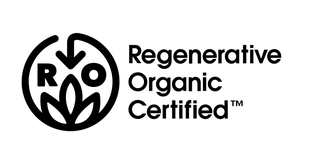
Regenerative Organic Certified
Backed by the Regenerative Organic Alliance and the Rodale Institute, the Regenerative Organic Certification (ROC) is a new certification for food, fiber and personal care ingredients. Representing the highest standard for organic agriculture in the world, ROC uses USDA Certified Organic as a baseline to incorporate regenerative organic agriculture practices. Regenerative organic agriculture is a collection of practices that focus on regenerating soil health and the full farm ecosystem from the soil microbiome to the animals to the workers.
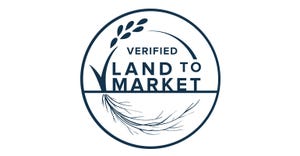
Land to Market
Land to Market works worldwide to help brands regenerate their grasslands and heal the planet. Like the Regenerative Organic Certification, it focuses on regenerative practices, but is focused on materials like meat, dairy, leather and wool. This certification is an outcomes-based certification, meaning measurable results are reassured like soil health, sequestered carbon and biodiversity. Consumers purchasing Land to Market certified products can rest easy, knowing they came from land that is verified actively regenerating.
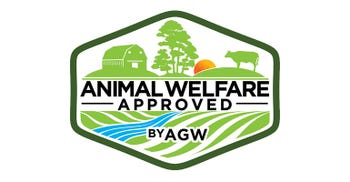
Animal Welfare Approved
The Animal Welfare Approved (AWA) certification by A Greener World (AGW) is the most stringent certification regarding animal welfare. It ensures the animals have continuous access to pasture or range for all animals, as well as restrictions on antibiotics, breeding, transport and slaughter. This certification is available for independent farms and producer networks, and is verified every 15 months for compliance.
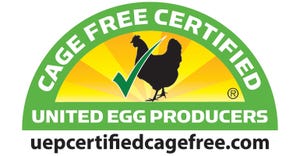
Cage Free
Cage Free eggs are certified via the United Egg Producers (UEP), a worldwide leader in the establishment of science-based animal practices. This label certifies that that no cages are used in the production of eggs and, according to UEP, all systems are designed to provide dedicated nests, constant access to feed and water, areas to perch and space for the hens to scratch, forage and dust bathe.
Together with scientists, UEP developed industry guidelines for the Cage Free egg certification. Companies hoping to carry the Cage Free logo on their products must meet all requirements and pass annual third-party audits by the USDA's Agricultural Marketing Service (AMS-Poultry Programs) and Validus Services.
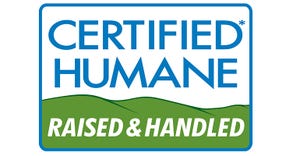
Free Range and Pasture Raised
While there have been only loose meanings for Free Range claims in the past, the Humane Farm Animal Care recently set standards and an official definition for both Free Range and Pasture Raised labeling. Free Range and Pasture Raised certifications are given through the nonprofit. This is an organization committed to improving the lives of farm animals by certifying their humane treatment.
The HFAC Free Range and Pasture Raised certifications are even one step above the USDA's requirements, giving poultry an even better quality of life that is verified to meet the HFAC standards during annual on-site visits by their third-party inspectors.
Certified Humane Raised and Handled
HFAC also confirms Certified Humane Raised and Handled practices to improve the lives of farm animals and drive consumer demand for more responsible farm animal practices. By using precise, objective standards, this certification covers farm animal care from birth to slaughter, ensuring they were cared for humanely and did not receive unnecessary antibiotics. Third-party inspections by scientists and veterinarians are conducted annually for all farms, ranches and slaughterhouses that utilize these certifications.
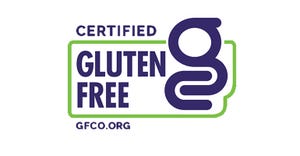
Gluten Free
According to independent research conducted in 2021 by NEXT on behalf of the non-profit Gluten Intolerance Group (GIG), nearly one out of four US adult shoppers report gluten avoidance in their households. The official Gluten-Free logo has been updated to meet global standards, so you may see varying logos as this change occurs on packaging.
Products with the updated Certified Gluten Free have passed the independent verification of quality and integrity through the Gluten Free Certification Organization (GFCO) and products that carry the mark represent unmatched reliability for meeting the strictest of gluten-free standards. GFCO utilizes audits, random product testing and process surveillance to hold brands accountable and keep consumers safe.
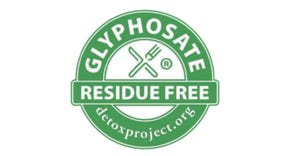
Glyphosate Residue Free
The Glyphosate Residue Free certification by The Detox Project is third party certified using ISO 17025 laboratories, and products and ingredients that carry the certification have no residue down to 0.01 ppm of testing. Products and ingredients are tested at least three times per year with additional verification. Single ingredients, single-ingredient foods and supplements, and multi-ingredient foods and supplements can all be certified with this logo. While this is a newer certification option, it offers consumers added peace of mind when looking for products to purchase.
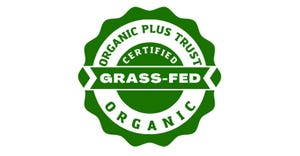
Certified Grass-Fed Organic Dairy
This certification is administered by the Organic Plus Trust, a third-party organization. This ensures that labeling is fair and transparent, and not swayed by brands. Foods with this certification undergo strict standards to receive this label. Not only are they required to recertify annually, but they must have full supply chain verification too. This means that not only are the farms themselves audited, but the ingredients and processes that create the final product are as well.
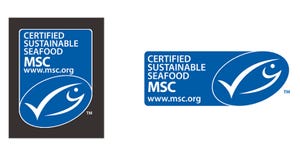
Marine Stewardship Council
According to a 2016 study by GlobeScan, 65% of consumers want to know the fish they buy can be traced to a known and trusted source. The Marine Stewardship Council (MSC) is an international nonprofit aiming to ensure all seafood is caught sustainably and end practices of overfishing. The MSC certification is backed up by independent surveillance audits and DNA testing, so by sporting the Marine Stewardship Council's blue fish logo, consumers know they can trust the most widely recognized seafood certification.
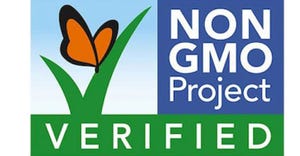
Non-GMO Project Verified
A GMO is any organism that has been modified using genetic engineering. Brands that do not utilize any GMO ingredients can apply to become certified via the Non-GMO Project certification. Since 2010, this certification has led the way in GMO avoidance and is third-party verified, ensuring products have independently been evaluated for compliance with the Non-GMO Project's expertly designed criteria.
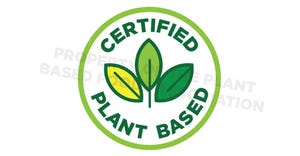
Plant Based
Launched by the Plant Based Foods Association in 2018, Certified Plant Based certification shows consumers that the product does not contain animal-derived ingredients—and it's verified by NSF International. Alternative protein products such as meant, egg and dairy substitutes are eligible for certification, but foods that normally would not include an animal-based ingredient are not. As consumers shy away from strictly defined diets, a more widely recognized symbol like this Plant Based certification will be more in-demand.
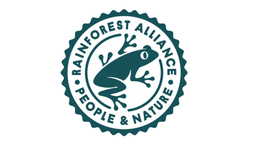
Rainforest Alliance Certified
Products certified with the Rainforest Alliance seal have passed the scrutiny of third-party auditors and prove that they support three pillars of sustainability: social, economic and environmental. Its data-informed standards promote best practices for protecting forests, managing land responsibly, providing human rights assistance and supporting the livelihoods of those in smallholder farms and forest communities.
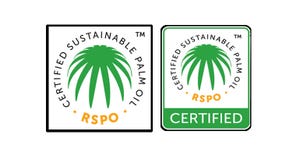
Roundtable on Sustainable Palm Oil
Roundtable on Sustainable Palm Oil (RSPO) is a global organization that incorporates stakeholders from every area of the palm oil industry. Together, this group creates certification standards that meet ISEAL requirements. From the beginning to the end of a supply chain, the RSPO certification is a credible and trustworthy certification for those wanting to ensure their palm oil isn't damaging to the environment.
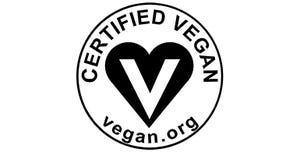
Vegan
The Certified Vegan Logo is a registered trademark for products that do not contain animal products or byproducts and that have not been tested on animals. No part of the process, from supplier to manufacturer, may be animal-derived and companies must provide verification to be certified.
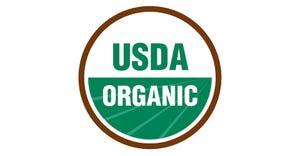
USDA Certified Organic
USDA Certified Organic seal is a third-party certification that looks at the entire ecosystem, following products from farm to retail. Foods, meat, dairy, pet food and dietary supplements can be USDA Organic. Foods with this certification are grown and processed according to guidelines regarding soil quality, animal raising practices, pest and weed control, and use of artificial additives. USDA-certified products never contain GMO ingredients.
About the Author
You May Also Like





